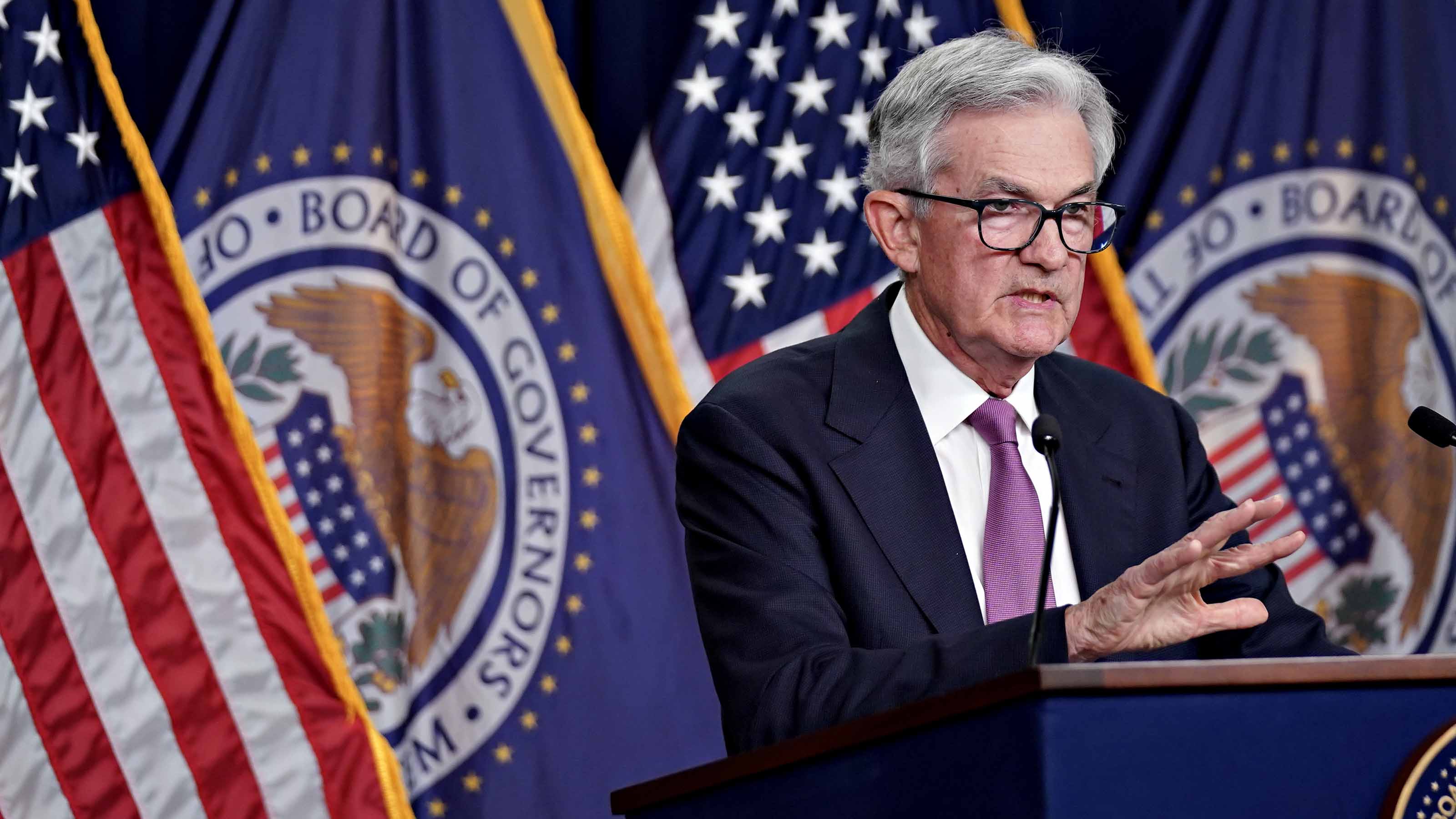
Stocks spent the day mostly higher in the lead up to this afternoon's policy announcement from the Federal Reserve. However, the major indexes swung lower after the central bank, as expected, held interest rates steady, but forecast more rate hikes to come.
Price action ultimately stabilized into the close, though one major index woefully underperformed its peers.
Today's pause by the Fed left the short-term federal funds rate at a range of 5.00% to 5.25%. However, the committee raised the median year-end target rate to 5.6% from 5.1%, implying two more quarter-point rate hikes by the end of 2023. The central bank said in its statement that "recent indicators suggest economic activity has continued to expand at a modest pace," and keeping rates unchanged allows it "to assess additional information and its implications for monetary policy."
The projections for an increase in the 2023 fed funds target is not set in stone, Fed Chair Jerome Powell said in his subsequent presser, adding that the central bank will make its future decisions based on data. "We remain committed to bringing inflation down," Powell said, which will require "a period of below-trend growth."
More signs inflation is easing
As for the data the Federal Reserve is watching, "the latest inflation prints showed a further easing in price pressures, most notably at the headline level," says Phillip Colmar, partner and global strategist of MRB Partners. This, he adds, "provided some flexibility for the Fed to take a breather at today's meeting."
Indeed, this morning's producer price index (PPI), which measures what businesses are charging suppliers for goods, painted a similar picture to yesterday's consumer price index (CPI). Specifically, the Bureau of Labor Statistics said earlier that its PPI fell 0.3% month-over-month in May, while core PPI, which excludes volatile food and energy prices, was unchanged. Both figures were improvements over the increases seen in April.
Investors shouldn't get too excited, however, considering that most of the decline in the headline PPI reading came amid a big drop in gasoline and diesel prices, says Bill Adams, chief economist for Comerica Bank. Still, the fact that producer prices are indeed cooling is encouraging. "The faster inflation comes down, the earlier the Fed can take their foot off the brake, and the sooner economic growth can pick up again," Adams says.
Following today's policy statement – and Powell's expectations that July will be a "live" meeting – interest rate traders assign a 64.5% probability of a rate hike at the next Fed meeting, up from 50% one week ago.
As for the major indexes, the Nasdaq Composite was down nearly 0.8% in the aftermath of the Fed announcement before ending with a 0.4% gain at 13,626. The S&P 500 rose 0.1% to 4,372.
The Dow Jones Industrial Average, meanwhile, spent the entire session lower on weakness in UnitedHealth Group (UNH), eventually finishing off 0.7% at 33,979. UNH slumped 6.4% after the health insurer said seniors are catching up on pandemic-delayed procedures, which is increasing costs for the company. At more than $460 a share, UNH has the greatest weighting of the 30 stocks in the price-weighted Dow.
Why you should avoid penny stocks
We tend to focus on long-term buy-and-hold investments at Kiplinger.com, like the kind found in stable blue chip stocks or the best dividend stocks. We do understand that some market participants like to play riskier corners of the market. So, every once in a while, we will offer up picks for the best cheap stocks to buy, while adding the caveat that these plays tend to be more volatile than their higher-priced counterparts.
However, what we never offer up are recommendations for penny stocks, or those equity securities that typically cost less than a dollar and trade over-the-counter (OTC). Why? Because they're "dangerous," explains Dan Burrows, senior investing writer at Kiplinger.com, in his feature "Penny Stocks: Why You Should Always Stay Away." Sure, there are a few quality names that trade OTC – mostly larger international stocks – but market participants should generally steer clear of these super-cheap, extremely volatile stocks.







